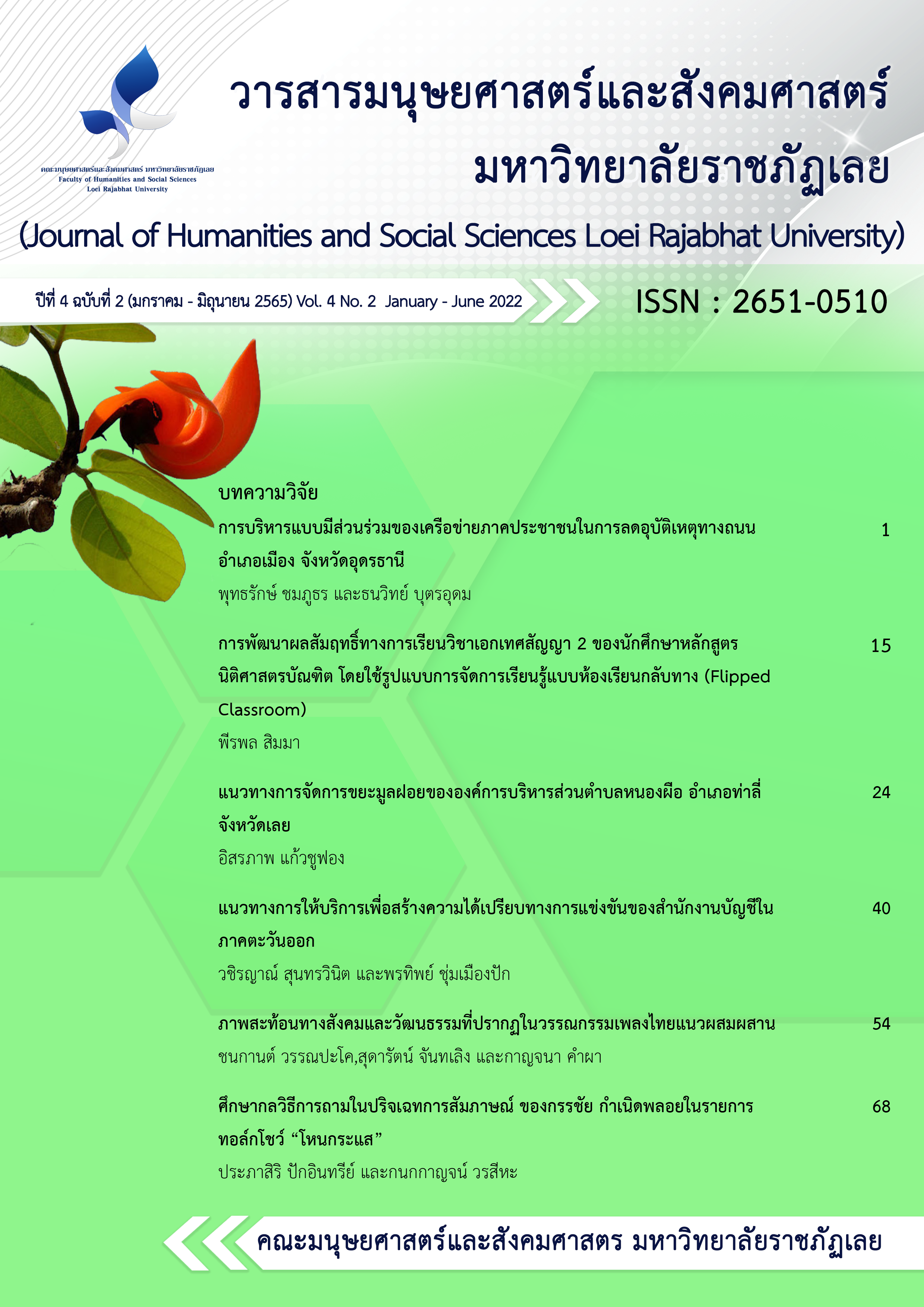A Study Questioning Strategies in the Interview Discourse of Kanchai Kamnerdploy in the Talk show “Hone-Krasae”
Keywords:
Questioning strategies, Interview discourse, Kanchai Kamnerdploy, Hone-KrasaeAbstract
This research aims at studying of questioning strategies in the interview discourse of Kanchai Kamnerdploy in the talk show, “Hone-Krasae” The researcher study the retrospective tape from the YouTube website, “Hone-Krasae” (Hone-Krasae) Official that aired between May - July 2021, and selected only tapes which have 1 million views or more. (Refer to information as on September 2, 2021), there were 14 episodes of the interview in talk shows “Hone-Krasae”. The results revealed that Kanchai Kamnerdploy chose various questioning strategies in the interview discourse of the talk show, “Hone-Krasae”, asking for the information needed from the interview. The results revealed that the 9 questioning strategies are: 1) repeating a question, 2) using a follow-up question, 3) guiding to certain answer, 4) asking as provocation, 5) stating counter evidence, 6) using an information checking question, 7) using a short-question, 8) stating a request, and 9) using a hypothetical question. It including the use of the supportive questioning strategies in the interview discourse of the talk show, “Hone-Krasae”, to help Kanchai achieve the objectives of the interview as he wanted. The results revealed that the 6 support questioning strategies are: 1) teasing or joking, 2) cutting short the irrelevant, 3) repeating the answers, 4) showing support, 5) summarizing, and 6) expressing emotions or sympathy.
Downloads
Published
Versions
- 2023-02-25 (2)
- 2022-06-30 (1)








